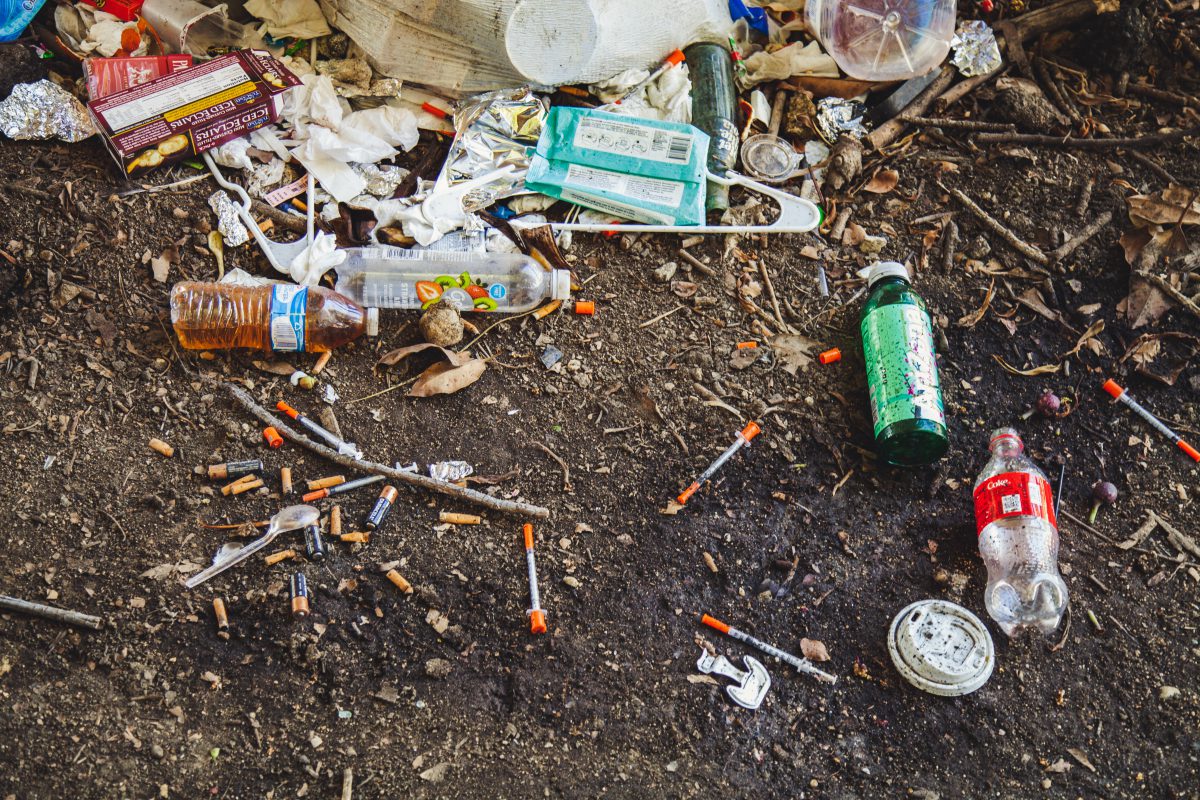Crime
Buying Fentanyl on the Streets of San Francisco—An Interview with Heather Mac Donald
Cities are one of the great accomplishments of human civilization.

Heather Mac Donald has written one of the most important essays on homelessness in recent memory for City Journal. In it, she argues that we’ve misunderstood the homelessness problem as a problem of poverty when it is, in reality, a problem of family breakdown and the erosion of social norms. While I don’t agree with all of what she’s written, I admire her fieldwork. She interviewed homeless people in San Francisco and even bought fentanyl, the synthetic opiate that resulted in over 17,000 drug overdose deaths in the United States last year, to investigate how easy it was. Such fieldwork is rarer than it should be among journalists and advocates alike. I thought her contribution to the growing debate over homelessness, particularly in California but nationally and globally as well, was so important, I requested a telephone interview for Quillette. It has been edited for length.

Quillette: What’s a nice lady like you doing buying fentanyl from drug dealers on the streets of San Francisco?
Heather Mac Donald: I wanted to test how easy it would be. Very easy, it turns out.
You weren’t worried about being hurt?
It’s a possibility. But I figure that my value-added as a writer is on the ground reporting.
It cracked me up that you offered just $8 for fentanyl. Was that because you were worried they would think you were a cop?
I really didn’t want to overpay! Literally, I had no idea what the going rate was for fentanyl. I’ve never used drugs in my life. It wasn’t that I didn’t want to be outed. I just didn’t want to be a patsy.
What’s your background?
I had aspired to be a professor of comparative literature. I regard the teaching of the humanities as one of the greatest privileges. But I gave up on that hope as the field became so politicized. Since then, I’ve written a lot on crime and policing. Doing that work entails going into housing projects and talking with drug dealers and gang members.
What do you think makes the homelessness crisis so important?
Cities are one of the great accomplishments of human civilization. They are places that should be forums for humans to interact peacefully to exchange ideas and goods and to work on creating things of value and beauty. Their functioning and livability depend on human beings within them following a certain code of civility.
Have we changed how we respond to homelessness?
Nothing changes. It’s the same false narratives about this being a housing problem and not a drug addiction and mental illness problem. The advocates are in the business of enabling the street vagrant lifestyle. The victims include small business owners who are made to work around people who colonize their front stoops and leave feces and discarded needles.
It’s extraordinary that often immigrant entrepreneurs—at least on Los Angeles’s Skid Row—must bear the brunt of this and that the advocates champion only the interests of the drug users, drug dealers, and people who are flouting the law.
What is your basic argument?
On homelessness my argument is simple: You just don’t allow this behavior. That’s the starting point. It’s not compatible with the long-term life of cities. Once you establish that — something that was uncontroversial 50 years ago when the police would move people along, and there was unanimity that if you were in public you would have to meet basic norms of public behavior — then you don’t let people colonize the sidewalks.
Why is any given city where someone ends up on the street morally obligated to provide housing to that person? Nobody’s ever explained why that is. Say somebody comes from Seattle or Iowa to be homeless in San Francisco. When did San Francisco taxpayers become obligated to provide housing for him?
So is this just about enforcing norms?
Once you establish that this behavior is not acceptable, then you have to answer the question of where to put people. And so for the sake of argument, let’s assume that cities are obligated to provide housing for everyone who ends up on their streets.
If that’s the case, there is still no entitlement to be housed in the most expensive housing market in the country. Politicians should be far more careful stewards of taxpayer dollars. We can get far more addiction and mental health services from building clean and sober facilities in abandoned industrial or rural areas than spending $800,000 for a single unit in San Francisco.
Is there also an argument that shelters in the city keep people surrounded by drugs?
I interviewed an ex-felon (now officially referred to as a “justice-involved” person in San Francisco) who had been in every prison in California. There are plenty of homeless services in the city, he reported. What’s tough, he said, is that when you get out of prison, to access those services and shelter you’re back among the drug markets. It’s asking a lot of a person to summon the willpower to go clean when drug deals are going down all around him.
Would you describe what’s happening as an excess of compassion?
It depends on how you define compassion. A conservative would say tough love is compassionate. But if compassion is making excuses and lowering standards, what Moynihan called “defining deviance down,” then yes, it’s excess compassion.
What else is going on, here?
Alice Baum and Donald Burnes, in their groundbreaking book, A Nation in Denial: The Truth About Homelessness, identified the primary causes of homelessness to be not just addiction and mental illness but also social disaffiliation. The homeless have broken the informal social ties of family and friends that keep people off the streets.
The more you normalize homelessness, and say, “You know, there are all these West Coast cities where you can just come and hang out!,” people have no incentive to keep their behavior and temper in check because there is always that escape valve. If street living is not an option, you ideally change your behavior before it provokes a crisis.
Do nonprofits and government agencies have an interest in maintaining homelessness?
I have spent a lot of time visiting the vast network of barely functional nonprofit organizations scattered in every neighborhood in inner-city New York. They are run by people who refuse to talk about personal responsibility and family breakdown. Self-destructive behaviors like teen child-rearing are normalized through such initiatives as daycares in high school, which send the message that adults viewed teen mothering as an ordinary rite of passage.
The social worker has become the substitute for parents and the more social breakdown there is, the more jobs there are for the nonprofit sector. I’m not a conspiracy theorist and think people are driven more by ideology than such long-term economic calculations. But those ideologies often have economic benefits for those who hold them.

Can family breakdown be addressed?
The Bush administration tried marriage counseling, but I disagree with my policy wonk colleagues who think tweaking the tax code will make a difference
What we need is a revalorization of males and a rebuttal of the feminist bromide that “strong women can do it all.” Certainly, there are heroic single mothers who are beating the odds and raising self-disciplined, law-abiding children. But the odds are against them. It’s asking too much just on a merely economic level — which is the least important drawback of single-parenting. But single mothers have half the kinship and economic resources of married parents to draw upon when things inevitably go wrong.
Ideally, children need their mother and their father. Recognizing that truth means admitting that men and women are different and that fathers, on average, bring different skills to child-rearing. Competition and an appetite for risk are disproportionally but not exclusively male traits and should be re-valorized.
What would you do as mayor or governor?
Mayors need to give their local police the authority to enforce the laws, including immigration laws. Many of the Honduran drug dealers in San Francisco are here illegally. If you want to get a criminal off the streets, it’s far easier to build an immigration case against him than a drug trafficking case. San Francisco law enforcement is betraying the public trust by refusing to cooperate with federal immigration authorities.
How did we get here?
Part of it is capitalism’s remarkable affluence that gave adolescents independent spending power. Corporations targeted that new market by creating a mindless consumer culture centered around adolescent rebellion. That’s been an incredibly corrosive force to parental authority.
Another part is the idea that rose in the sixties which held that favored victim groups should not be held to a universal code of conduct. That idea degrades the alleged beneficiaries of those double-standards and allows them to continue a lifestyle that is extremely self-destructive.
Having given up on shared norms of behavior, another 10-year task force on homelessness is not going to make any difference.






